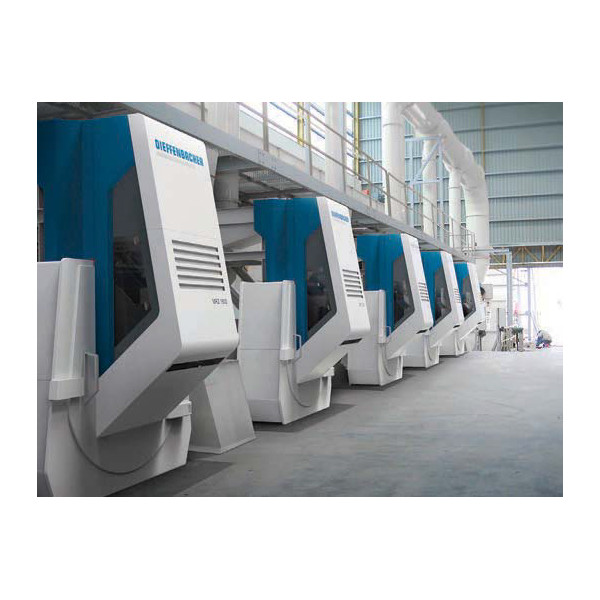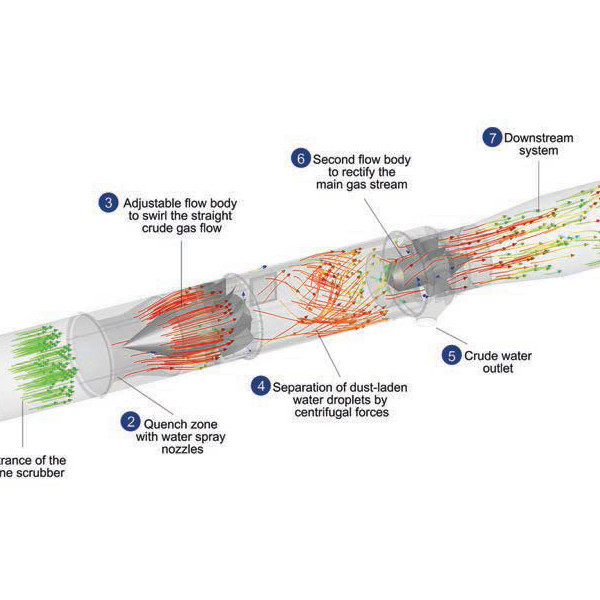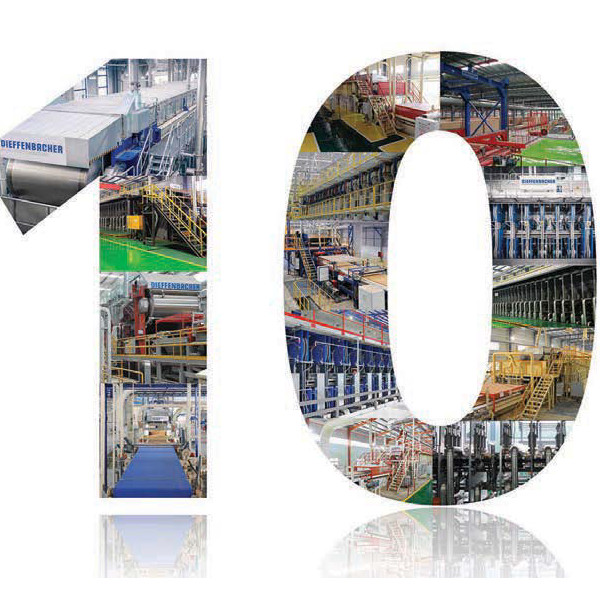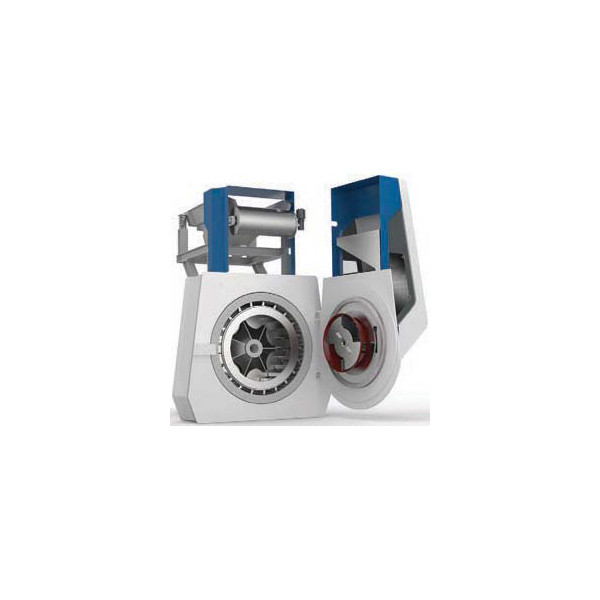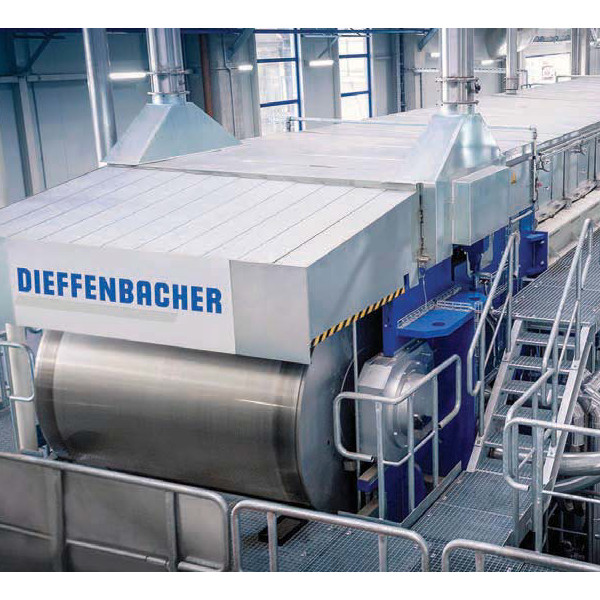Building on success
21 December 2018With another successful year approaching a close, complete line supplier Dieffenbacher is looking forward to the future with new developments and new markets to explore. Mike Botting visited the company's Eppingen headquarters
Dieffenbacher, founded in 1873, is still a family-owned and run business and is confident about 2018’s turnover results. The figure for 2017 was €417m.
“We expect to be at least at that level by the end of 2018,” said Stefan Zipf, head of the Wood Business Unit at Dieffenbacher, when interviewed for this report in October. “We still have a couple of projects in the pipeline which may come to fruition [before the year’s end], but you can never be sure of the timing, as finance issues, or other accounting or planning factors, may influence when the contract is actually signed, so we may in fact comfortably exceed 2017’s figure.”
Looking back on 2018 so far, Dieffenbacher is proud to mention the Arauco site in Grayling, Michigan, where the largest particleboard plant in North America – and one of the world’s largest continuous particleboard presses – will be starting production in December 2018.
The continuous press seemed to be totally taking over the press market in the US, but then along came Martco in Corrigan, Texas. Its Dieffenbacher 14-opening OSB press went into production in April 2018.
Meanwhile, it’s not all about conventional panel products, either: The company has supplied the world’s longest continuous LVL press, to Roseburg in Chester, South Carolina.
Dieffenbacher has also supplied several complete plants to China to make particleboard from rice straw.
Talking of North America/Mexico, Dieffenbacher has expanded its team at Dieffenbacher Customer Support LLC (DCS) and Dieffenbacher North America (DNA) and between them these two subsidiaries cover spare parts, service and plant modernisations/improvements.
Setting another record for Dieffenbacher as a supplier, Greenply in India is in production with Asia’s longest continuous press (56m). This MDF line can produce up to 1,400m3/day.
Meanwhile, in Italy, Fantoni has completed its first full year of MDF production on the longest continuous press Dieffenbacher has yet made (65m). This line is called Plaxil 8.
“We see a good future development in the panel industry. There are still a lot of new players entering the market in some regions, often to reduce imports," said Mr Zipf.
Dieffenbacher launched its latest generation CPS+ continuous press in 2015 and has sold 22 of them since. Ten of those will be running by the end of this year.
“The major difference with the CPS+ [over the CPS] was that we moved the hydraulic cylinders from the top of the press to above the heating platens,” explained Mr Zipf. “We also made operation simpler for the technicians, with improved visualisation, and we enabled them to produce better quality panels throughout their range of products.
“Of those 22 presses, some went to new customers, while several customers have already ordered a second CPS+ press,” he added.
“It was a sort of door-opener to new customers,” confirmed Mr Eisenmann, head of marketing at Dieffenbacher. “Five continents now have a CPS+ for particleboard, MDF or OSB. They range from 6 to 10ft wide and 14 to 65m long.”
Automation is a hot topic for the industry these days, perhaps with the ultimate goal of a ‘people-free’ factory. However, not everybody thinks that is a good idea – or even a goal for which to aim.
“We are already strong in automation,” pointed out Mr Eisenmann, “with everbetter visualisation, for instance, to help our customers. But there are limitations to automation when you are working with a natural product. We try to help the people working in the mill to make better decisions, rather than having an automated system making the decisions for them.
“You can have too much data – and people who are not trained to deal with it – and our customers see this as a threat.
“Efficient production is essential, but so is the final quality of the product,” added Mr Eisenmann. “Having said that, the rate of product [specification] changeover is continually increasing and this is where good technology can help.”
‘Industry4.0’ is on everybody’s lips these days, but Dieffenbacher says it will not fuel this hype, but will find and develop digitalisation solutions which really help its customers in practice.
Examples of this approach are 'MyDieffenbacher' and the Dieffenbacher ‘Management Cockpit’.
MyDieffenbacher, mainly covers digital spare part identification and plant documentation; customers can easily identify, select and request spare parts.
The idea of the Management Cockpit is that an app provides the customer with available plant data on mobile devices such as laptops, tablets and smart phones. This gives the customer the ability to make fast decisions based on real-time data.
In order to make this work, Dieffenbacher must deploy a large number of microcontrollers, all networked and communicating with each other, explains Dieffenbacher, and these must have “intelligent addressing”.
Relevant people receive this information, depending on their role within the company. This, says the company, is the goal of the Management Cockpit. Distinctions are made in who receives what information (eg executive board, plant manager, technologist), thus protecting sensitive management data: This is data refinement.
Plant-specific characteristics are also taken into account in order to provide a wellthought- out, and necessarily unique, solution.
Some components of the Management Cockpit are currently in operation at a panel plant and Dieffenbacher’s goal is to have all new plants equipped with it by Spring 2019.
Efficient wood-size-reduction is another important part of any panel plant and Maier, a fully-owned subsidiary of Dieffenbacher, launched its new Knife Ring Flaker, the MRZ, at Ligna 2017.
This incorporates the ‘FlowOptimizer’, a special distribution rotor integrated into the flaking chamber, which gives 3-D distribution of the material flow. Since that Ligna exhibition, more than 20 orders have been received for the new flaker. ‘FlowOptimizer’ is also available as an upgrade to existing machines.
“It’s not only the ‘insides’ of the MRZ that have changed,” said Mr Zipf. “We are also working on the external appearance of the machines.”
So the MRZ has a smart new cabinet, which not only looks better but also has improved functionality and usability, he said. This unavoidably noisy machine is also a bit quieter.
“When there is innovation inside the product, people should be able to see it from the outside,” added Mr Zipf.
“For Ligna 2019, we have significant new innovations, in many areas, to show,” said Mr Eisenmann. “We want to be seen as a complete service provider from the woodyard to the warehouse.”
The use of recycled wood is certainly increasing in the global panel industry and Mr Zipf said that Dieffenbacher is responding to this, too.
“We already have hammermills, chippers, flakers, screens and sifters in our product range,” he said. “And we offer x-ray sorting in combination with these machines.”
Dieffenbacher has recently sold three such lines to particleboard producers: Pfleiderer in Neumarkt, Germany; Nolte, not far from Dieffenbacher’s home town of Eppingen; and FunderMax in Austria.
“We are in close discussions with some MDF manufacturers as well,” said Mr Zipf. “This is an area of the market where we definitely see growth,” added Mr Eisenmann.
Environmental clean air technology, both inside and outside the production halls, is another area in which the company is involved.
“We take contaminated air from the press area and clean it, but that air needs to be replaced by fresh air and that is also part of the system. It is often not sufficient simply to leave the factory doors open,” said Mr Zipf. “We also supply a wet scrubbing system. There is a lot of pressure on panel makers in the environmental area, globally, but especially in China. Some plants in China are in fact being shut down completely for contravening environmental regulations.
“The process begins with an inspection of the problem areas and then we partially enclose the press to extract and clean the air. There is also a heat exchanger to re-use the heat from the exhaust air.” It’s not all about technology, though. Sales personnel are also, of course, necessary.
In July 2018, Dieffenbacher appointed a new sales director in the person of Ms Cornelia Hildebrandt, who has extensive experience, both with Dieffenbacher and in other industries.
As a good year ends for Dieffenbacher, it seems an even better new year beckons – and it’s a Ligna year, which makes it even more important for the sales team.
